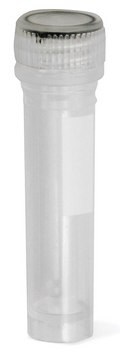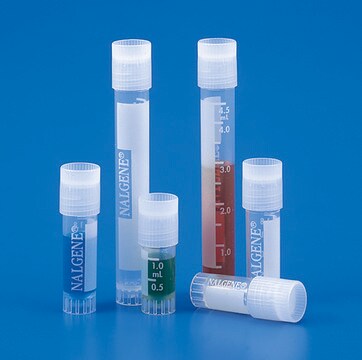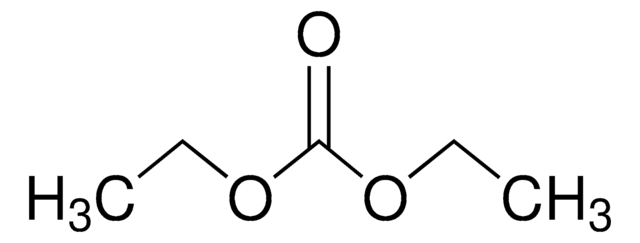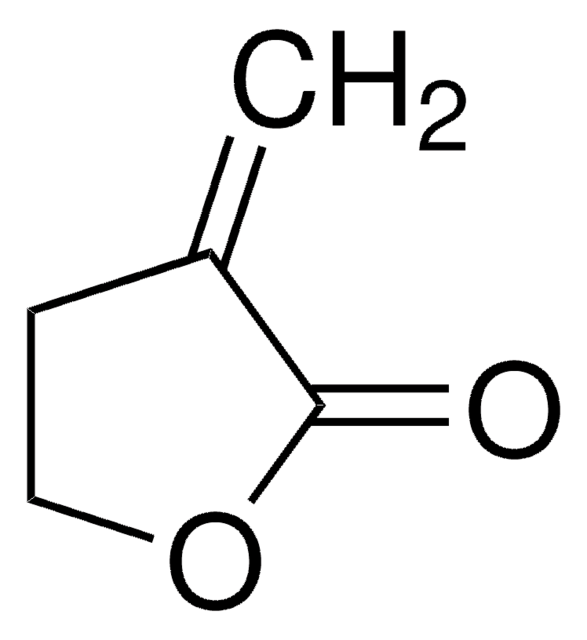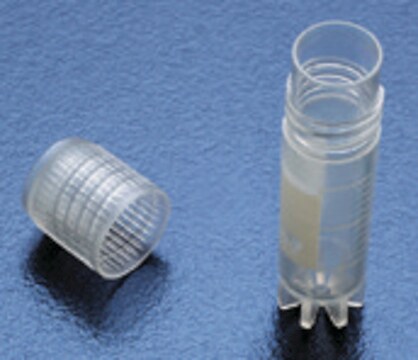907243
Methyl (4-bromobenzoyl)-L-cysteinate
≥95%
Sinonimo/i:
Chemoselective thiol probe for detection of electrophilic metabolites, Cysteine thiol probe, Pharmacophore probe for electrophilic natural products
Autenticatiper visualizzare i prezzi riservati alla tua organizzazione & contrattuali
About This Item
Formula empirica (notazione di Hill):
C11H12BrNO3S
Numero CAS:
Peso molecolare:
318.19
Codice UNSPSC:
12352101
Prodotti consigliati
Saggio
≥95%
Stato
powder
Temperatura di conservazione
2-8°C
Applicazioni
Methyl (4-bromobenzoyl)-L-cysteinate is a chemoselective thiol probe for detection of electrophilic metabolites. As it is often difficult to isolate low-abundance natural products from extracts, metabolities with bioactivity or therapeutic potential may be missed. Castro-Falcón, et al developed a reactivity-guided approach using thiolate probes to discover electrophilic natural products - a cysteine-based probe and thiophenol-based probe. Both consist of
Complementarily, a thiophenol probe (cat# 125237) with a chlorine MS tag and phenyl chloride UV tag labeled epoxide-based natural products. These probes can be used in diverse extracts (bacterial, fungal, plant) to chemically faciliate access to high-value metabolites.
- A chemoselective reagent for covalent reactivity with a pharmacophore,
- A conspicuous UV/VIS or mass spectrometric (MS) tag,
- A linker between the tag and reagent. Methyl (4-bromobenzoyl)-L-cysteinate contains a bromine MS tag and phenyl bromide UV tag that was demonstrated to chemoselectively label enone-, β-lactam-, and β-lactone-based natural products.
Complementarily, a thiophenol probe (cat# 125237) with a chlorine MS tag and phenyl chloride UV tag labeled epoxide-based natural products. These probes can be used in diverse extracts (bacterial, fungal, plant) to chemically faciliate access to high-value metabolites.
Altre note
Thiol Probes To Detect Electrophilic Natural Products Based on Their Mechanism of Action
Thiol-Based Probe for Electrophilic Natural Products Reveals That Most of the Ammosamides Are Artifacts
Neolymphostin A Is a Covalent Phosphoinositide 3-Kinase (PI3K)/ Mammalian Target of Rapamycin (mTOR) Dual Inhibitor That Employs an Unusual Electrophilic Vinylogous Ester
Thiol-Based Probe for Electrophilic Natural Products Reveals That Most of the Ammosamides Are Artifacts
Neolymphostin A Is a Covalent Phosphoinositide 3-Kinase (PI3K)/ Mammalian Target of Rapamycin (mTOR) Dual Inhibitor That Employs an Unusual Electrophilic Vinylogous Ester
Prodotti correlati
N° Catalogo
Descrizione
Determinazione del prezzo
Codice della classe di stoccaggio
11 - Combustible Solids
Classe di pericolosità dell'acqua (WGK)
WGK 3
Punto d’infiammabilità (°F)
Not applicable
Punto d’infiammabilità (°C)
Not applicable
Scegli una delle versioni più recenti:
Certificati d'analisi (COA)
Lot/Batch Number
Ci dispiace, ma al momento non ci sono COA disponibili online per questo prodotto.
Se ti serve aiuto, non esitare a contattarci Servizio Clienti
Possiedi già questo prodotto?
I documenti relativi ai prodotti acquistati recentemente sono disponibili nell’Archivio dei documenti.
Daniela Reimer et al.
Journal of natural products, 80(1), 126-133 (2017-01-06)
To date, 16 members of the ammosamide family of natural products have been discovered, and except for ammosamide D each of these metabolites is characterized by an unusual chlorinated pyrrolo[4,3,2-de]quinoline skeleton. Several ammosamides have been shown to inhibit quinone reductase
Gabriel Castro-Falcón et al.
ACS chemical biology, 11(8), 2328-2336 (2016-06-14)
New methods are urgently needed to find novel natural products as structural leads for the development of new drugs against emerging diseases such as cancer and multiresistant bacterial infections. Here we introduce a reactivity-guided drug discovery approach for electrophilic natural
Gabriel Castro-Falcón et al.
Journal of medicinal chemistry (2018-11-02)
Using a novel chemistry-based assay for identifying electrophilic natural products in unprocessed extracts, we identified the PI3-kinase/mTOR dual inhibitor neolymphostin A from Salinispora arenicola CNY-486. The method further showed that the vinylogous ester substituent on the neolymphostin core was the
Il team dei nostri ricercatori vanta grande esperienza in tutte le aree della ricerca quali Life Science, scienza dei materiali, sintesi chimica, cromatografia, discipline analitiche, ecc..
Contatta l'Assistenza Tecnica.
